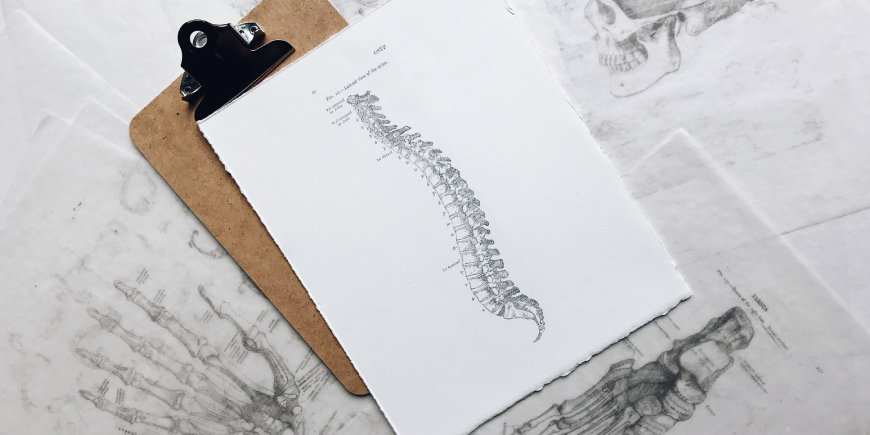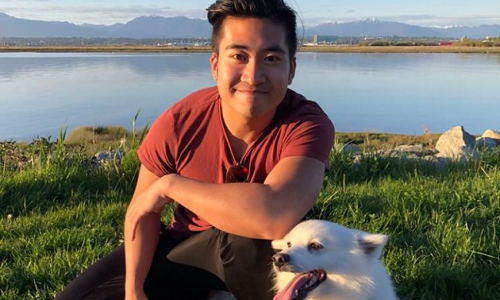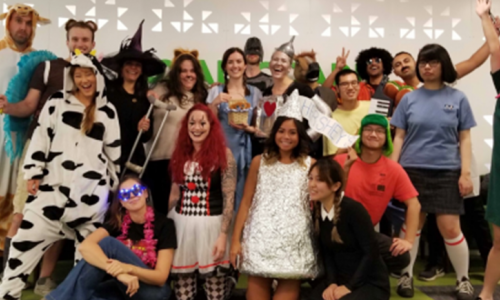
Kelvin Physiotherapy Clinic is a privately owned clinic. It consists of 15 staff members of kinesiologists and medical office assistants (not including the 2 physiotherapists and the office manager). Usually, there are 2-3 office assistants and 1-2 kinesiologists during each shift. The clinic is separated into 3 sections: the gym area, front desk and treatment area. The clinic is located in a building that provides an awesome view (pictured above).
My Duties: Front Desk
My official title at the clinic was Medical Office Assistant. At the front desk, I did a lot of secretarial duties: answered the phones, took messages, booked and cancelled patients’ appointments, took payment, prepared files, faxed documents, called doctor offices and hospitals for reports, filed files, and, my favourite, called patients to remind them of their appointments.
In this position, I learned how to multi-task. For example, there was one time when 3 patients came in together and the phones were ringing. I was on the phone rescheduling a patient’s appointment while finding the 3 patients’ files, asking them to sign in, and taking their payments. To be efficient in the clinic, you need to know how to multi-task. One day, I would like to improve my multitasking skills to be at the level of some of the people I work with. For instance, my supervisor can write a report, listen to the physiotherapist and talk to a patient at the same time. Multi-tasking is key in the medical world!
My Duties: Patient Care
Besides doing secretarial tasks, I was trained in “Patient Care”. In this role, I was the middleman between the patients and the physiotherapists. When the physiotherapists think that a patient needs electrotherapy, muscle stimulation, shockwave or traction treatments, I was the one that set up the machines, released the patients from them when they were done, and cleaned the machines after usage. For ice and heat treatments, I applied those treatments directly onto the patients based on the physiotherapists’ instructions. In this role I also organized and directed where patients went for their treatments, cleaned treatment tables after treatments for hygiene purposes, made sure patients did not fall or faint after their treatments, and ensured that the patients were comfortable (I made sure a box of tissues were available after a painful treatment).
From this position, I learned how to be observant. I learned to ask myself questions like:
- Does the patient look pale after the treatment and complain of dizziness? If “yes”, I would quickly go into minor emergency mode to make sure the patient does not faint.
- Is the patient pregnant or did she recently give birth? If “yes”, I would need to prepare the treatment table to avoid unnecessary complications with the pregnancy or to the mother.
- Does the patient feel cold in the office? If “yes”, I would turn down the air conditioning and provide a blanket.
- Does the patient look bored? If “yes”, I would offer them reading materials.
This position gave me the opportunity to interact with patients quite often, which meant that I needed to provide exceptional customer service. What does exceptional customer service look like? I once went down to the sidewalks to add more money for a patient’s parking meter. The sincere gratitude from the patient really made my day!
Miscellaneous Duties
I was the unofficial gardener’s assistant. There were many plants in the clinic and I was in charge of watering and giving them fertilizers.
The usual cleaning crew did not work on Saturdays. Therefore, I was in charge of cleaning out all the garbage in the clinic.
What I Have Learned
Working in the clinic has been stressful but I enjoyed working with my coworkers and getting to know some of the patients. The skills that I have developed during my time there, like multitasking and customer service skills will carry through to my future placements and careers. I have discovered what I liked and disliked from working in the physiotherapy clinic, and will keep this knowledge in mind when applying for future positions.














